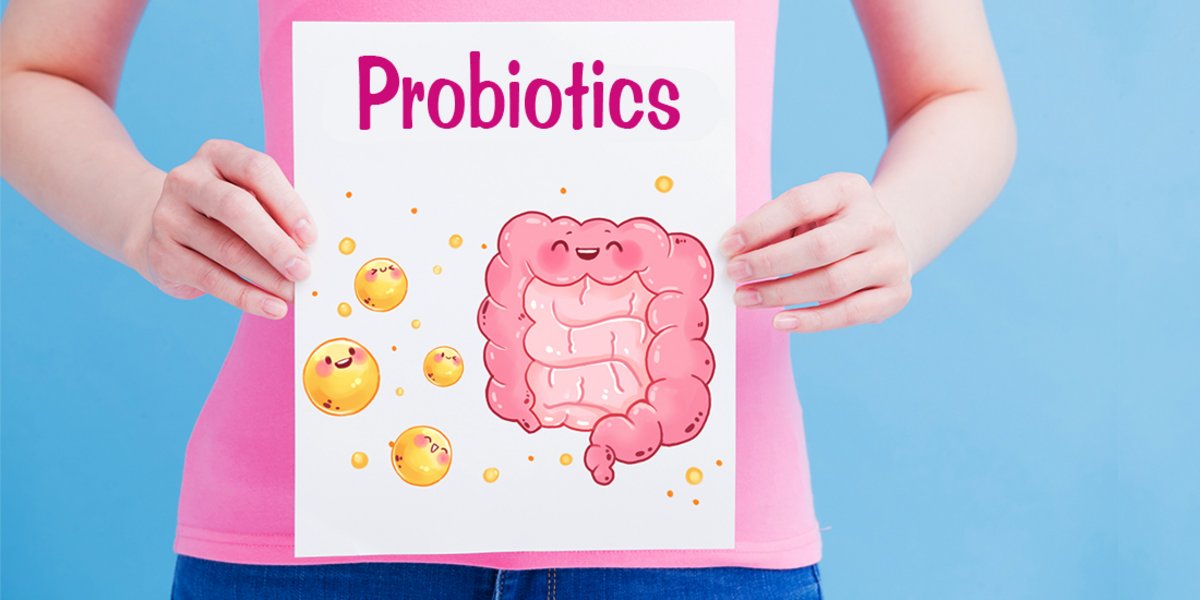Probiotics are live bacteria that have benefits for the digestive system. Nicknamed by the scientific community as being "good bacteria", they promote the absorption of vitamins and minerals which are essential for our bodies, such as calcium, iron, and chromium. In addition to neutralizing some of the toxic by-products of digestion and reducing harmful substances such as toxins and carcinogens, these good bacteria help stimulate the digestive process and aid in the absorption of nutrients, as well as producing vitamins, including B and K.
The by-products of the good bacteria present in the intestine help regulate the growth of intestinal cells and keep them healthy.
Thus, the beauty of having good intestinal flora is the secret of longevity, ceratinly not to be ignored as the intestine is our second brain! Today, there are a multitude of probiotic products on the market. However, choosing the right product that meets our needs is not necessarily easy. Fortunately, there are some natural probiotics that are less aggressive for the body and quite accessible. They are also the best.
The most common fermented foods that naturally contain probiotics, or to which probiotics have been added, are yogurt, kefir, kombucha, pickles, miso, tempeh, kimchi, sourdough bread and some cheeses.
Here is a non-exhaustive list of natural probiotics:
Fermented natural yogurt
It is the most famous probiotic, you can even make it at home. Some yogurts on the market are concentrated in flavors, colorings, refined sugar, which does not really leave much room for probiotics. Most yogurts today are pasteurized, and unfortunately the pasteurization process drastically reduces the "probiotic benefits" of the product. Indeed, it is much more advisable to consume the most natural yoghurt possible, without flavorings or added sugars; simply a raw milk yoghurt. It can even consolidate to the relief of symptoms of irritable bowel syndrome
Raw milk cheeses
Well known for their calcium and protein intake, which are necessary for our metabolism. In addition, raw milk cheeses (brie, camembert, Roquefort and so forth) ripen in such a way as to promote the production of natural probiotics. Thanks to these cheeses, probiotics can even reach the small intestine. These unpasteurized cheeses can also provide calcium and protein and promote the functioning of the metabolism.
Fermented Cabbage/Sauerkraut
This is a very benign natural probiotic for the intestines. Very concentrated in lactic acid, it facilitates the regeneration of the intestinal membranes, constitutes an excellent diuretic and acts against intestinal parasites. Fermented cabbage is full of probiotics but is also rich in vitamin C and can become a real health food ally.
Micro-algae
The virtues of chlorella, spirulina and other kinds of algae no longer need to be proven. They promote the development in the intestines of certain micro bacteria such as lactobacilli and bifidobacteria.
Micro-algae are very rich in vitamins and minerals. Their detoxifying, alkalizing and anti-inflammatory properties are getting increasingly recognized. Micro-algae reduce fatigue, and are effective against type 2 diabetes, hypertension, vascular problems.
Kefir
Similar to yoghurt, is a fermented drink containing a mixture of milk and fermented kefir grains, very popular in Eastern Europe, Russia and Asia. Kefir is even richer in probiotics than yogurt. It may promote bone health, improve digestive function and protect against infections.
Moreover, kefir also contains essential vitamins, minerals and amino acids. Be careful because this drink is obviously characterized by the presence of lactic acid but also alcohol (from 0.5 to 2%) caused by the fermentation of the fruit.
Kombucha
Of Asian origin, it is a fermented drink containing tea, sugar, natural probiotics and yeast. It is widely consumed in China, where it is recognized for its many virtues on the human body. It rebalances the intestinal flora, it facilitates digestion. It also contains many vitamins, mineral salts and enzymes. It also seems to have a positive effect on our skin by regulating its microbiota.
To make the most of the benefits of probiotics, we must not forget that these bacteria, in a natural way, do not remain in the intestine and that we must therefore consume foods containing them on a very regular basis.
Probiotics have nothing more to prove, their benefits and virtues are widely recognized. It is still necessary to be vigilant and to disentangle the true from the false with regard to the benefits of probiotics, especially in relation to everything that is offered in pharmacies and parapharmacies... Stay vigilant! And don't forget to ask your doctor for advice.
Editorial advice: foods rich in probiotics and their benefits are often overlooked as there are so many... Food supplements, on the other hand, are numerous and the number of varieties remains an essential point in the choice of probiotics to use. Choose carefully. However, it is advisable to start in small quantities, especially for people with a fragile digestive system. Once the body is used to it, the doses can be absorbed and increased gradually.









